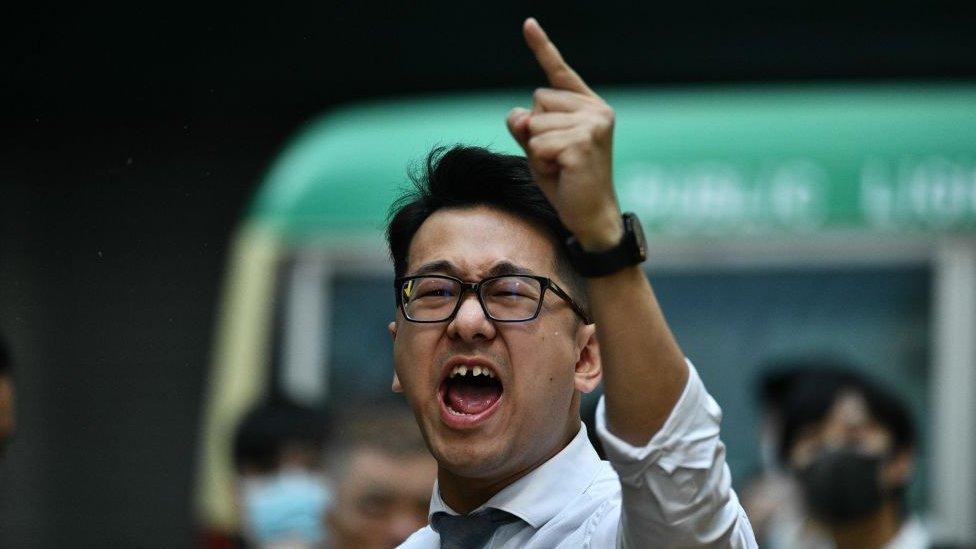Carrie Lam: Hong Kong's leader says she has to keep piles of cash at home
- Published
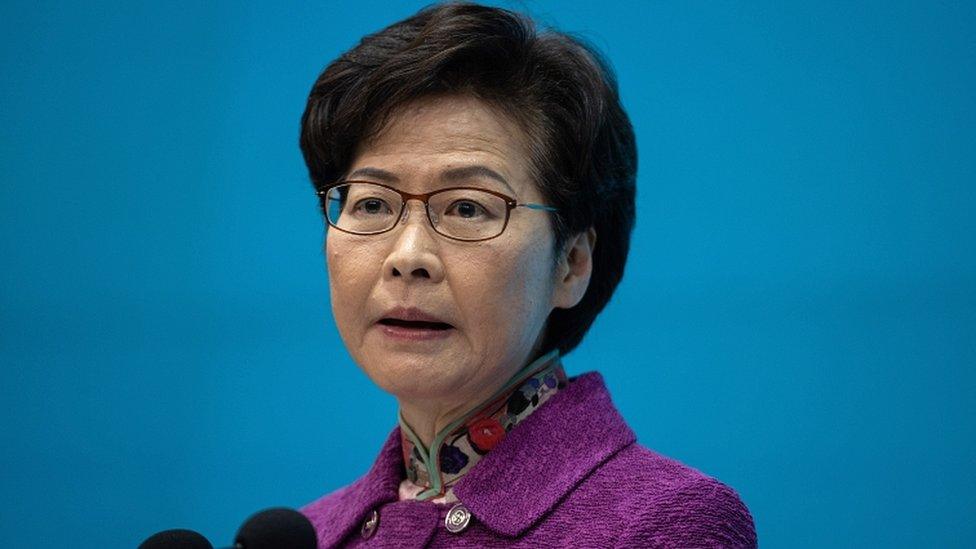
Carrie Lam is said to be one of the highest paid leaders in the world
Hong Kong's Chief Executive, Carrie Lam, has said in a TV interview that she has to keep "piles of cash" at home as she has no bank account.
This is because of sanctions imposed on her by the US Treasury, she said.
The sanctions on Ms Lam and other officials were in response to China's new security law for Hong Kong.
Her revelation has prompted social media speculation about how the government manages to transport the leader's generous salary to her home.
Allow X content?
This article contains content provided by X. We ask for your permission before anything is loaded, as they may be using cookies and other technologies. You may want to read X’s cookie policy, external and privacy policy, external before accepting. To view this content choose ‘accept and continue’.

In an interview broadcast on Friday night, she said she was "using cash every day for all the things".
"Sitting in front of you is a chief executive of the Hong Kong SAR (Special Administrative Region) who has no banking service made available to her," she told local English TV channel HKIBC, external.
"I have piles of cash at home, the government is paying me cash for my salary because I don't have a bank account," she added.
She also added that it was "very honourable" to be "unjustifiably sanctioned" by the US government.
She is said to be one of the highest paid leaders in the world, and has been reported to earn an annual salary of HK$5.2m ($670,000; £500,000).
In June, China imposed a controversial national security law on Hong Kong, which critics say threatens its freedoms and undermine the city's autonomy.
It also makes it easier to punish protesters and there are fears it may lead to judicial independence being threatened.
In response to the new law, Washington decided to freeze the US assets of a dozen Hong Kong officials and seize any property they may own in the US.

You may also be interested in:
The families of 12 Hong Kong activists captured at sea by China look for answers
- Published8 August 2020
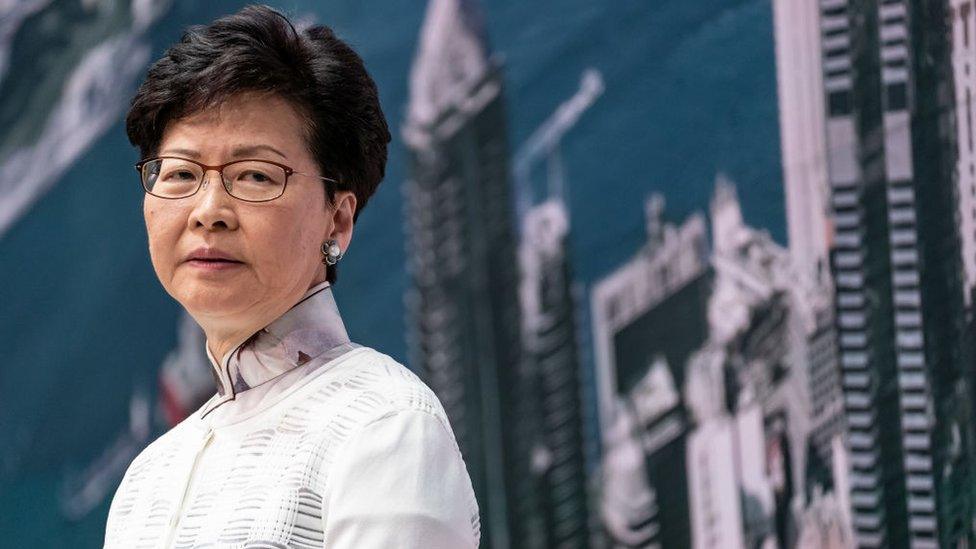
- Published23 November 2020

- Published19 November 2020
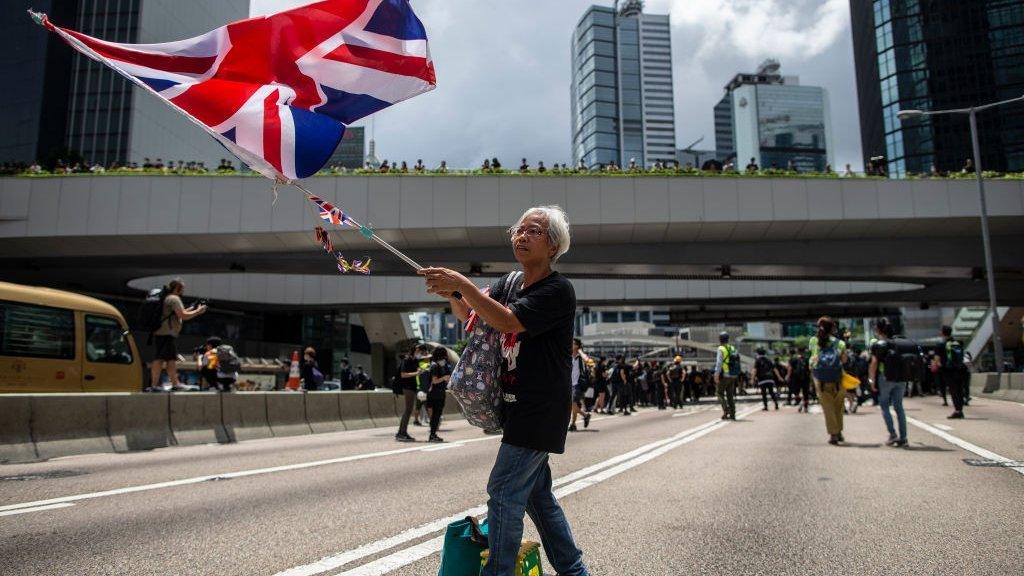
- Published21 May 2020
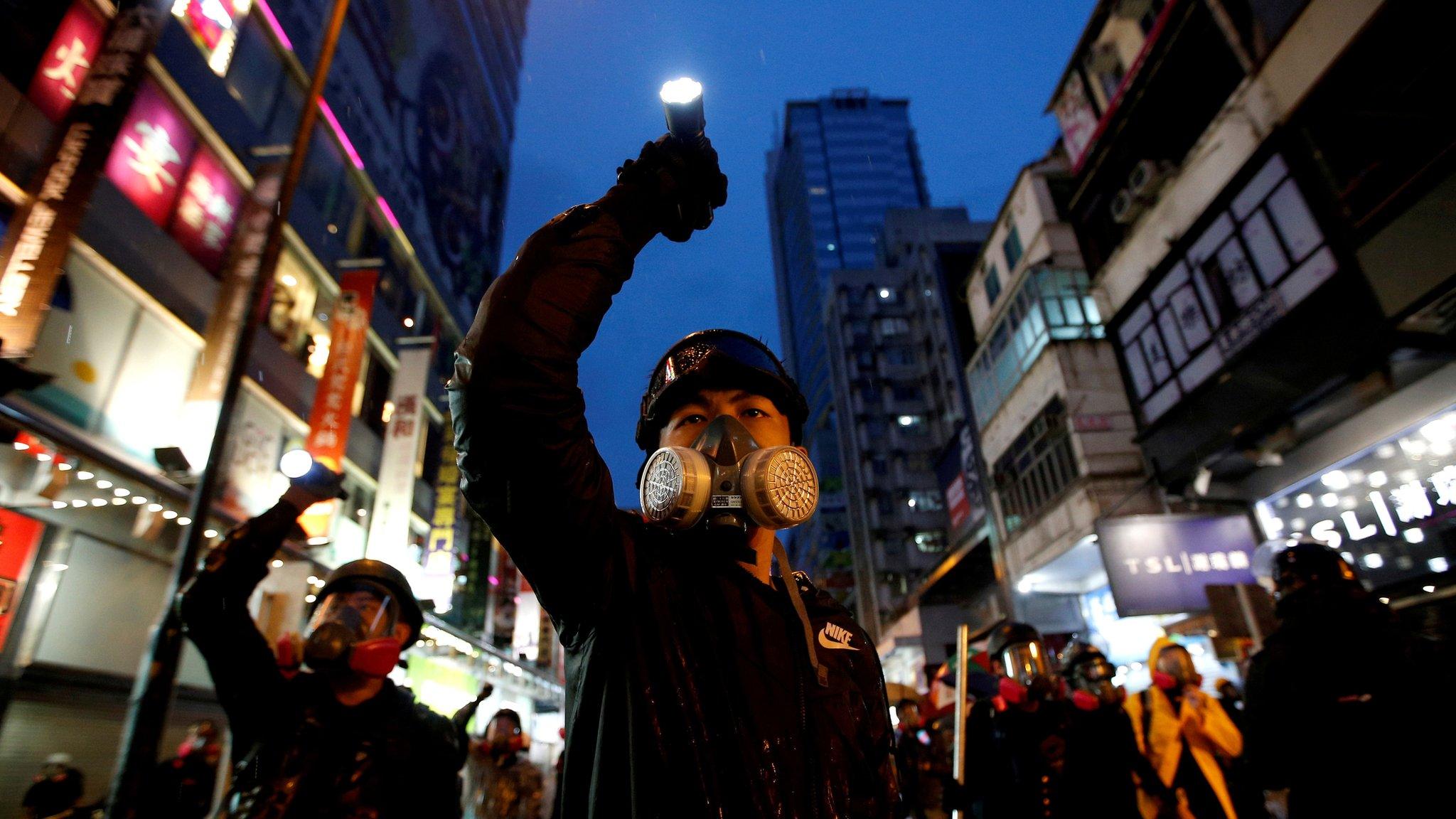
- Published12 November 2020
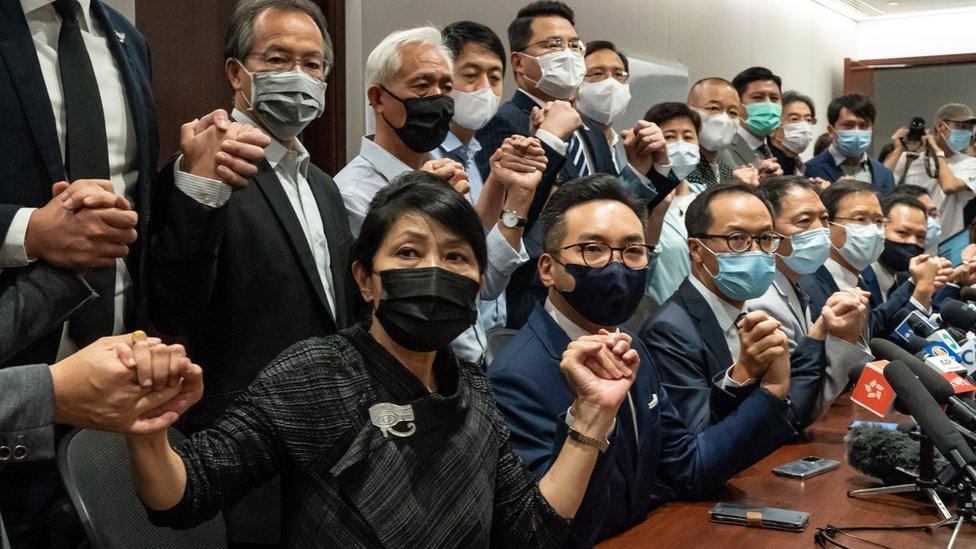
- Published31 August 2020
